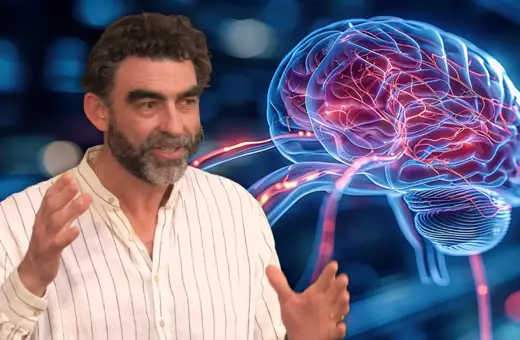Philosopher of science Peter Vickers puts forward his take on the recent IAI News standoff between panpsychism and idealism.
It is absolutely accepted that the philosopher should have a great respect for science, as an epistemological endeavour. On the face of it, both science and philosophy search for truth: scientists ask ‘big’ questions such as “Where did human beings ultimately come from?”, and philosophers similarly ask ‘big’ questions such as “What is the relationship between the mind and the brain?”. But whereas scientists sometimes actually reach truth (human beings evolved from more primitive mammals, which themselves evolved from amphibians, etc.), philosophers seemingly never do, and are doomed to forever go round in circles.
Looking back at the history of philosophy, it is usual to speak of ‘fashions’; for example, when we ask about the relationship between mind and matter, there was a time when dualism was in fashion, a time when idealism was in fashion, and another time when physicalism was in fashion. More recently, panpsychism is enjoying a great deal of attention. But it would be bold indeed to claim that philosophers are on the way to definitively solving the mind-matter problem, in the way scientists have definitively solved a huge number of epistemological problems. Of course, some Kuhnians would try to push back, saying that science is punctuated by revolutions. But this is a fallacy: only radicals on the fringe think the evolutionary theory of mankind’s origins will one day be overturned in a Kuhnian revolution. Similarly, scientists really do know where stars come from, how viruses and bacteria cause illness, and a hundred other things. (Open questions concerning the details remain, naturally.)
In light of this thought, what should we make of the recent debate between Philip Goff and Bernado Kastrup, concerning the mind-matter problem and the nature of consciousness? Two solutions are offered: panpsychism (‘mind is everywhere’), and idealism (‘everything is mind’). Even before we look at the arguments, it seems clear that these can only be suggestions, or hypotheses. What we find is that the two authors sometimes state explicitly that we ought to believe in their favoured proposal. But given that these are philosophical proposals this seems like an exaggeration. Whilst it might be agreed that – considered in isolation – there are some quite persuasive philosophical arguments for Goff’s panpsychism, or Kastrup’s idealism, we must always bear in mind that the very nature of the evidence for these proposals is the kind of evidence that, historically, has never been able to definitely establish something as a ‘fact’. Consider, for example, arguments for panpsychism appealing to ‘simplicity’.
Two solutions are offered: panpsychism and idealism. Even before we look at the arguments, it seems clear that these can only be suggestions.
This isn’t to say that there is an absolutely clear dividing line between what might be called ‘philosophical evidence’, and scientific evidence; scientists, in addition to experiments and observations, also make use of arguments akin to philosophical arguments, for example. Sometimes they even appeal to ‘simplicity’. So we should think of a spectrum, running from ‘fully scientific’ evidence on the one extreme, through to ‘fully philosophical’ evidence on the other extreme, with a substantial grey area in the middle. The crucial point is this: when one tries to place the evidence put forward for panpsychism and idealism on this spectrum, it certainly comes much closer to the ‘fully philosophical’ end of the spectrum. And that makes it ill-suited to settling a dispute.



















Join the conversation